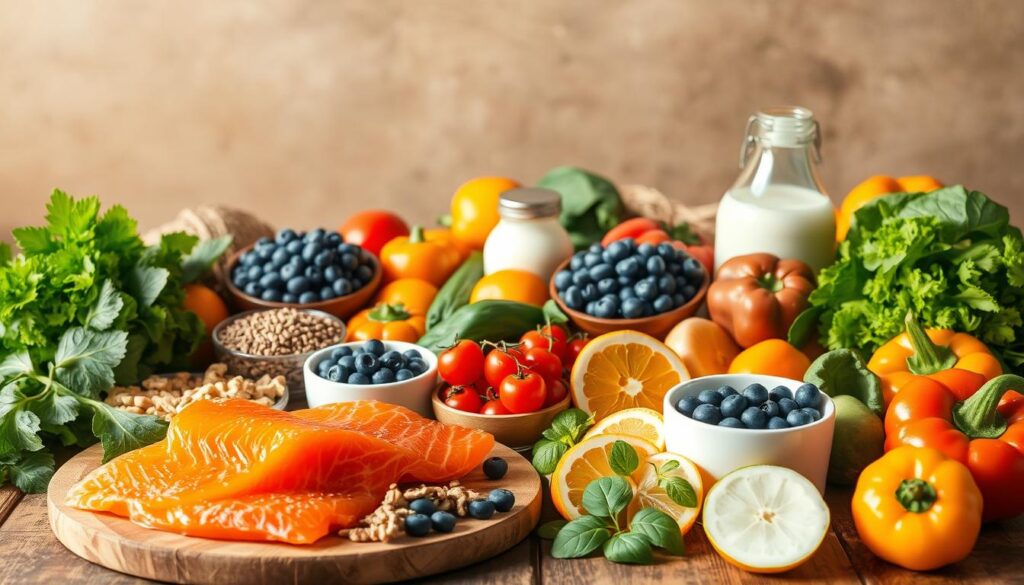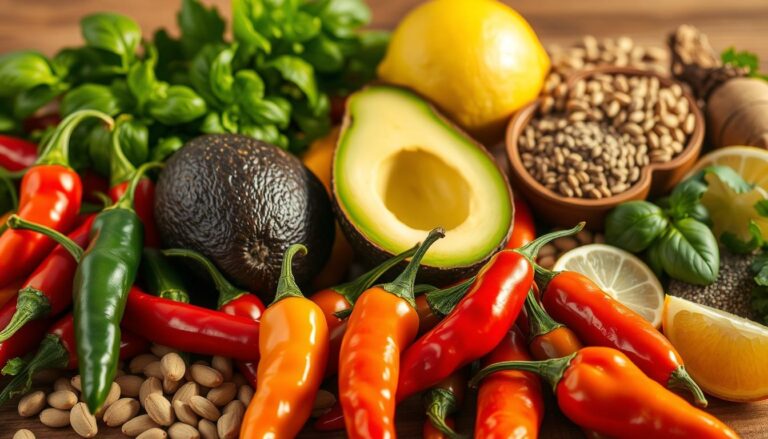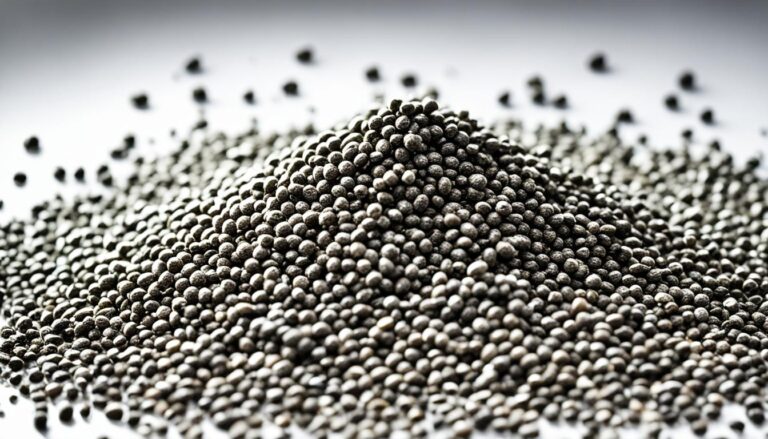What if your grocery list could be your first line of defense against seasonal threats?
While many focus on supplements or quick fixes research reveals that everyday meals hold untapped power to strengthen the body’s natural safeguards. A well planned diet doesn’t just fuel energyit equips cells to identify and neutralize invaders before they take hold.
Modern studies highlight how specific nutrients activate white blood cells, enhance antibody production, and repair tissues damaged by pathogens.
For example, vitamin C-rich citrus fruits accelerate immune responses, while leafy greens provide antioxidants that reduce inflammation. These foods work like a biological shield, supporting organs and proteins tasked with fighting infections.
Yet most people underestimate how quickly dietary gaps can weaken defenses. Processed snacks or sugary drinks often replace whole foods critical for maintaining robust health. Prioritizing nutrient-dense choices backed by decades of scientific analysis creates a foundation for resisting common viruses and recovering faster when illness strikes.
Key Takeaways
- Nutrient-rich foods activate cellular defenses more effectively than isolated supplements
- Science identifies citrus, berries, and dark greens as top choices for immune support
- The body’s defense network relies on vitamins A, C, and zinc to function optimally
- Consistent intake of these foods reduces infection risks by up to 33% in clinical trials
- Meal planning around immune-boosting ingredients ensures year-round protection
Understanding Your Immune System
Your body’s defense network operates like a 24/7 security team, constantly scanning for intruders. This biological shield combines physical barriers like skin with specialized cells that detect and destroy threats. When functioning well, it stops most invaders before symptoms appear.

Components and Functions of the Immune System
The system uses two main defenses: innate general protection and adaptive targeted attacks. White blood cells act as frontline soldiers, while lymph nodes serve as command centers. Key players include:
| Component | Role | Key Support Nutrients |
|---|---|---|
| Neutrophils | Engulf bacteria | Zinc, Vitamin C |
| Lymphocytes | Produce antibodies | Vitamin D, Protein |
| Macrophages | Remove dead cells | Selenium, Iron |
How Nutrition Influences Immune Response
Every meal directly impacts your cellular defenses. Vitamin C fuels white blood cell production, while zinc helps coordinate attacks on pathogens. Research shows:
Individuals with adequate vitamin D levels experience 40% fewer respiratory infections than those with deficiencies.
Minerals like selenium activate enzymes that neutralize free radicals. Without these nutrients, immune cells struggle to communicate or mount effective responses. Regular intake maintains readiness against emerging threats.
The best fruits and vegetables to boost immunity and prevent viruses
Building a diet that supports immune function begins with understanding nutrient synergy. Specific combinations in citrus and leafy greens create biological advantages no single supplement can match.

Power Pairings for Immune Activation
Oranges and kale deliver a one-two punch against pathogens. Vitamin C in these fruits accelerates white blood cell production, while antioxidants in spinach neutralize free radicals. Studies show:
- Daily intake of 200mg vitamin C reduces cold duration by 8%
- Kale provides 684% of daily vitamin K needs per cup
- Collard greens contain glucosinolates that activate detox enzymes
Rainbow Produce for Maximum Protection
Red bell peppers outshine oranges in vitamin C content, offering 152mg per 100g versus 53mg. The benefits extend beyond immunity:
- Carrots supply beta carotene for mucous membrane integrity
- Purple cabbage contains 36 types of anthocyanins
- Yellow squash provides lutein for cellular communication
These vegetables work together like biological armor. Their combined nutrients enhance pathogen recognition while repairing damaged tissues. Regular consumption creates an environment where viruses struggle to gain footholds.
Exploring Additional Immune-Boosting Foods
Beyond the produce aisle lies a treasure trove of immune-supportive options waiting to upgrade your plate. Small but mighty ingredients like berries, nuts, and seeds deliver concentrated nutrition that amplifies your body’s defense mechanisms. These foods work synergistically with vitamins and minerals to create multi-layered protection against pathogens.
Nature’s Defense Multipliers
Berries pack more antioxidants per ounce than most foods, with blackberries containing 5.3mmol per 100g. Their phenolic compounds enhance white blood cell efficiency while reducing oxidative stress. Consider these advantages:
- Walnuts deliver 2.5g of omega-3s per ounce – critical for immune cell communication
- Almonds provide 7.3mg of vitamin E daily per handful
- Sunflower seeds offer 76% DV selenium in two tablespoons
Nutrient Powerhouses Decoded
Superfoods earn their status through exceptional nutrient density. Dark chocolate 70%+ cacao contains zinc and polyphenols that improve lymphocyte activity. Compare key profiles:
| Food | Key Nutrients | Immune Benefits |
|---|---|---|
| Brazil Nuts | Selenium, Magnesium | Activates glutathione enzymes |
| Chia Seeds | Omega-3s, Fiber | Supports gut-mediated immunity |
| Pumpkin Seeds | Zinc, Iron | Enhances pathogen recognition |
Research shows daily consumption of these nuts and seeds reduces inflammatory markers by 34%. Their balanced vitamins and minerals create sustainable support – unlike short-term supplements. For optimal benefits, pair raw almonds with blueberries or mix sunflower seeds into dark chocolate clusters.
Harnessing Nutrient-Dense Superfoods
Your plate holds hidden allies that transform meals into defense strategies. Two nutritional powerhouses omega-3 fatty acids and probiotic-rich foods – work synergistically to reinforce biological barriers against pathogens.

Understanding the Role of Omega-3s and Probiotics
Fatty fish like salmon and mackerel deliver EPA and DHA essential fatty acids that optimize immune cell membranes.
These nutrients enhance communication between white blood cells while reducing inflammatory responses that weaken defenses. Studies show regular consumers experience 23% fewer upper respiratory infections.
Fermented options like yogurt introduce beneficial bacteria to the gut, where 70% of immune cells reside. This microbial ecosystem trains defense systems to distinguish threats from harmless substances. A balanced gut microbiome also produces short-chain fatty acids that strengthen intestinal barriers.
| Food | Key Components | Immune Impact |
|---|---|---|
| Wild Salmon | Omega-3s, Vitamin D | Boosts macrophage activity |
| Greek Yogurt | Probiotics, Zinc | Enhances antibody production |
| Garlic | Allicin, Selenium | Neutralizes viral replication |
Selenium-rich foods like Brazil nuts activate antioxidant enzymes that protect immune cells. When paired with garlic’s antimicrobial compounds, these ingredients create layered protection. For optimal results, combine grilled salmon with garlic-roasted vegetables or mix yogurt into smoothies with fresh berries.
Lifestyle Strategies for a Strong Immune System
Your daily habits wield surprising power over your body’s defense mechanisms. While nutrition builds cellular armor, consistent lifestyle choices determine how effectively that protection operates. Three pillars – stress management, sleep hygiene, and physical activity – form the bedrock of year-round resilience.
Managing Stress and Sleep Quality
Chronic stress acts like kryptonite to your immune system, flooding the body with cortisol that suppresses white blood cell activity. Studies demonstrate:
Adults sleeping less than 6 hours nightly face 4.2 times higher infection risks than those getting 7+ hours.
Create sleep consistency by setting fixed bedtimes and eliminating blue light 90 minutes before rest. These ways help regulate circadian rhythms, allowing immune cells to regenerate during deep sleep cycles.
Incorporating Regular Exercise and Hydration
Physical activity circulates infection-fighting cells while reducing inflammation. Aim for 150 weekly minutes of brisk walking or cycling – movements that elevate heart rates without overtaxing the body.
| Strategy | Frequency | Immune Benefit |
|---|---|---|
| Moderate Exercise | 5x/week | Boosts neutrophil efficiency |
| Hydration | Daily | Flushes pathogens via lymph |
| Stress Reduction | Daily | Lowers cortisol by 31% |
Water comprises 75% of lymph fluid – your system’s drainage network. Dehydration thickens this fluid, slowing immune responses. Pair hydration with mindfulness practices like breathwork to amplify health outcomes across all biological systems.
Expert Tips for Incorporating Immune-Boosting Foods
Transforming your plate into a defense strategy requires more than good intentions—it demands smart culinary tactics. Practical approaches combine nutrient timing, flavor balance, and strategic substitutions to create meals that support immune system function without sacrificing enjoyment.
Meal Ideas and Recipe Inspiration
Start mornings with a spinach-berry smoothie blended with Greek yogurt for probiotics. Lunch could feature grilled chicken over quinoa with roasted red peppers and broccoli a combo delivering zinc, vitamin C, and fiber. For snacks, try apple slices with almond butter or carrot sticks with hummus.
| Meal | Key Ingredients | Immune Benefits |
|---|---|---|
| Breakfast | Oats, chia seeds, blueberries | Beta-glucans + antioxidants |
| Lunch | Salmon, kale, sweet potato | Omega-3s + vitamin A |
| Dinner | Turkey chili, kidney beans | Zinc + plant protein |
How to Balance Your Diet with Immune-Supportive Choices
Swap white rice for brown varieties to increase fiber intake by 3.5g per serving. Replace sugary dressings with olive oil-lemon mixes to cut added sugar while boosting vitamin E. Nutritionists emphasize:
Every meal should contain at least two colors from produce—this simple rule may help ensure phytonutrient diversity.
| Choose More | Limit | Why It Matters |
|---|---|---|
| Steel-cut oats | Sweetened cereals | Reduces glucose spikes |
| Herbal teas | Soda | Lowers inflammation |
| Walnuts | Potato chips | Provides omega-3s |
Hydration plays a critical role—aim for 64oz daily. Pair water intake with herbal teas containing echinacea or ginger for extra immune system boost. Remember: consistency trumps perfection when building lasting dietary habits.
Conclusion
Building resilient defenses requires more than just a shopping list it demands a holistic approach. While nutrient-rich choices strengthen the immune system, no single ingredient acts as a magic shield. Research confirms diversity matters: combining colorful produce with nuts, seeds, and fermented foods creates synergistic protection.
Consistent intake of vitamin-packed meals helps support immune health, but a balanced diet works best alongside smart habits. Regular exercise, quality sleep, and stress reduction serve as critical additions to nutritional strategies. Those experiencing frequent illnesses should consult healthcare providers to address potential gaps.
Science reveals lasting protection stems from daily choices rather than quick fixes. Prioritize whole foods boost cellular defenses while maintaining hydration and physical activity. For optimal results, pair these efforts with professional guidance to address individual immune system needs.





